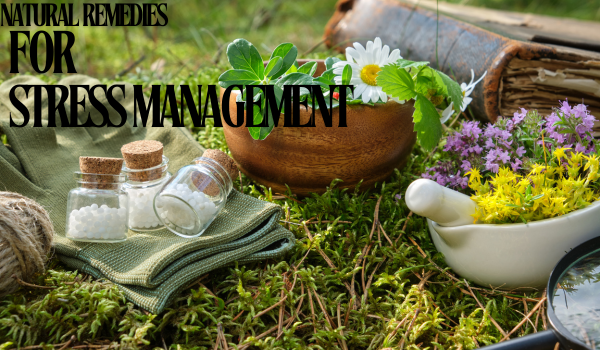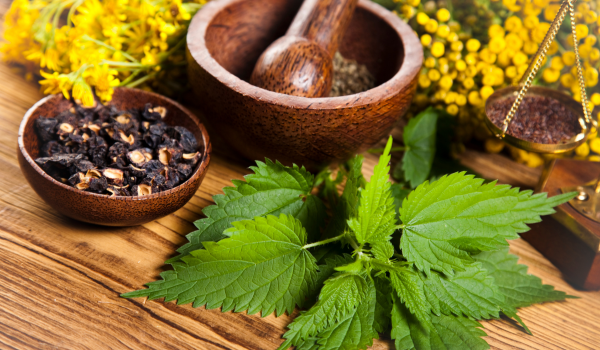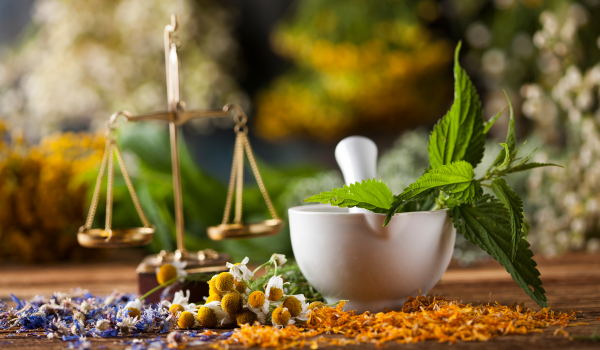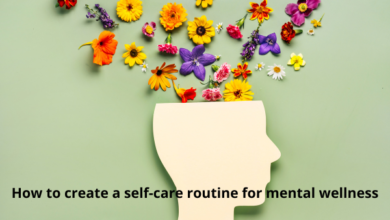Natural remedies for stress management

Introduction
Stress is an unavoidable part of life, but it doesn’t have to control you. Managing stress is crucial for maintaining both mental and physical health. Natural remedies offer a holistic approach to stress management, utilizing simple, effective methods that can easily be incorporated into daily life. This article will guide you through various natural remedies for stress management, helping you find the best strategies for your unique needs.
Understanding Stress
Stress is the body’s response to any demand or challenge. It can be caused by various factors, including work, relationships, financial pressures, and health concerns. Symptoms of stress can be physical, such as headaches and muscle tension, or emotional, such as anxiety and irritability. Chronic stress can lead to serious health issues, including heart disease, depression, and a weakened immune system. Recognizing the signs of stress and addressing them early is essential for long-term health.
Diet and Nutrition
What you eat plays a significant role in how you feel. Certain foods can help reduce stress levels and improve overall well-being:
- Foods That Reduce Stress: Incorporate foods rich in omega-3 fatty acids (like salmon and flaxseeds), antioxidants (such as berries and dark chocolate), and magnesium (found in leafy greens and nuts) to help lower stress.
- Importance of Hydration: Staying hydrated is crucial, as dehydration can increase cortisol levels, the stress hormone.
- Avoiding Stress-Inducing Foods: Limit intake of caffeine, alcohol, and sugary snacks, as they can exacerbate stress symptoms.

Herbal Remedies
Herbs have been used for centuries to promote relaxation and reduce stress:
- Chamomile: Known for its calming effects, chamomile tea can help soothe nerves and promote sleep.
- Lavender: Lavender oil, whether used in aromatherapy or applied topically, is effective in reducing anxiety and promoting relaxation.
- Ashwagandha: This adaptogenic herb helps the body manage stress and supports overall mental health.
- Valerian Root: Often used as a natural sleep aid, valerian root can also help reduce anxiety.
Exercise and Physical Activity
Regular physical activity is one of the most effective ways to combat stress:
- Benefits of Regular Exercise: Exercise releases endorphins, which are natural mood lifters. It also helps improve sleep and reduces anxiety.
- Yoga for Stress Relief: Yoga combines physical postures, breathing exercises, and meditation to promote relaxation and reduce stress.
- Simple Daily Exercises: Activities like walking, stretching, and light cardio can easily be integrated into your daily routine to help manage stress.
Mindfulness and Meditation
Mindfulness and meditation are powerful tools for managing stress:
- Mindfulness Practices: Mindfulness involves staying present and fully engaging with the current moment, which can help reduce stress and improve mental clarity.
- Guided Meditation: Using guided meditation apps or recordings can provide structure and support, making it easier to practice regularly.
- Breathing Exercises: Simple breathing techniques, such as deep breathing and box breathing, can quickly calm the mind and reduce stress.
Sleep and Relaxation
Quality sleep is essential for stress management:
- Importance of Quality Sleep: Poor sleep can increase stress levels and make it harder to cope with daily challenges.
- Techniques for Better Sleep: Establish a regular sleep schedule, create a relaxing bedtime routine, and avoid screens before bed.
- Relaxation Techniques: Practices such as progressive muscle relaxation and warm baths can help you unwind and prepare for restful sleep.
Aromatherapy
Aromatherapy uses essential oils to promote relaxation and reduce stress:
- How Aromatherapy Works: Essential oils can affect the brain’s limbic system, which controls emotions and mood.
- Essential Oils for Stress Relief: Oils such as lavender, chamomile, and bergamot are known for their calming properties.
- Ways to Use Essential Oils: Use a diffuser, add a few drops to a bath, or apply diluted oils to the skin.
Social Connections
Social support is crucial for managing stress:
- The Role of Social Support: Connecting with friends and family can provide emotional support and reduce feelings of isolation.
- Spending Time with Loved Ones: Make time for regular social activities, whether it’s a meal, a walk, or a phone call.
- Joining Support Groups: Support groups, both online and in-person, can provide a sense of community and shared understanding.

Hobbies and Leisure Activities
Engaging in hobbies can be a great way to relieve stress:
- Benefits of Engaging in Hobbies: Hobbies provide a sense of accomplishment and can be a distraction from stressors.
- Examples of Relaxing Hobbies: Consider activities like gardening, knitting, painting, or reading.
- Scheduling Time for Leisure: Make it a priority to set aside time for activities you enjoy.
Nature and Outdoor Activities
Spending time in nature has a calming effect:
- Healing Power of Nature: Nature can reduce stress, improve mood, and enhance overall well-being.
- Activities to Do Outdoors: Hiking, walking, and picnicking are great ways to enjoy the outdoors.
- Gardening as Stress Relief: Gardening can be particularly therapeutic, providing physical activity and a connection to nature.
Creative Outlets
Creative activities can help manage stress by providing an emotional outlet:
- Art Therapy: Creating art can help express emotions and reduce stress.
- Writing and Journaling: Writing about your thoughts and feelings can provide clarity and relief.
- Music and Dance: Listening to music, playing an instrument, or dancing can elevate mood and reduce stress.
Professional Help
Sometimes, professional help is necessary for managing stress:
- When to Seek Professional Help: If stress becomes overwhelming or chronic, it may be time to seek help from a professional.
- Types of Therapy for Stress: Cognitive-behavioral therapy (CBT), mindfulness-based stress reduction (MBSR), and other therapeutic approaches can be effective.
- Finding the Right Therapist: Look for a licensed therapist with experience in stress management.
Combining Multiple Remedies
Using a combination of remedies can be most effective:
- Creating a Stress Management Plan: Identify which remedies work best for you and create a personalized plan.
- Tracking Your Progress: Keep a journal to track your stress levels and the effectiveness of different remedies.
- Adjusting Your Approach: Be flexible and willing to adjust your plan as needed.
Conclusion
Stress management is an ongoing process that requires a holistic approach. By incorporating natural remedies such as diet changes, herbal supplements, exercise, mindfulness practices, and creative activities, you can significantly reduce stress and improve your overall well-being. Start experimenting with these techniques today and discover what works best for you.
FAQs
- What are some natural remedies for stress management?
- Natural remedies include dietary changes, herbal supplements, exercise, mindfulness practices, and engaging in hobbies.
- How can exercise help reduce stress?
- Exercise releases endorphins, which are natural mood lifters, and helps improve sleep and reduce anxiety.
- What are some effective herbal remedies for stress?
- Chamomile, lavender, ashwagandha, and valerian root are known for their calming properties and can help reduce stress.
- How can mindfulness and meditation help with stress?
- Mindfulness and meditation help you stay present, reduce anxiety, and improve mental clarity





I have been browsing online more than three hours today yet I never found any interesting article like yours It is pretty worth enough for me In my view if all website owners and bloggers made good content as you did the internet will be a lot more useful than ever before
Normally I do not read article on blogs however I would like to say that this writeup very forced me to try and do so Your writing style has been amazed me Thanks quite great post
Real Estate Pretty! This has been a really wonderful post. Many thanks for providing these details.
Usually I do not read article on blogs however I would like to say that this writeup very compelled me to take a look at and do it Your writing style has been amazed me Thank you very nice article